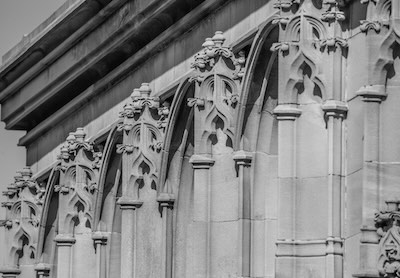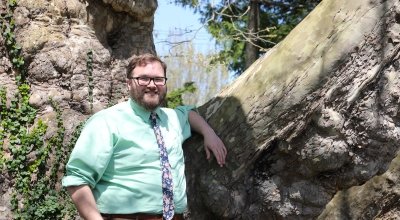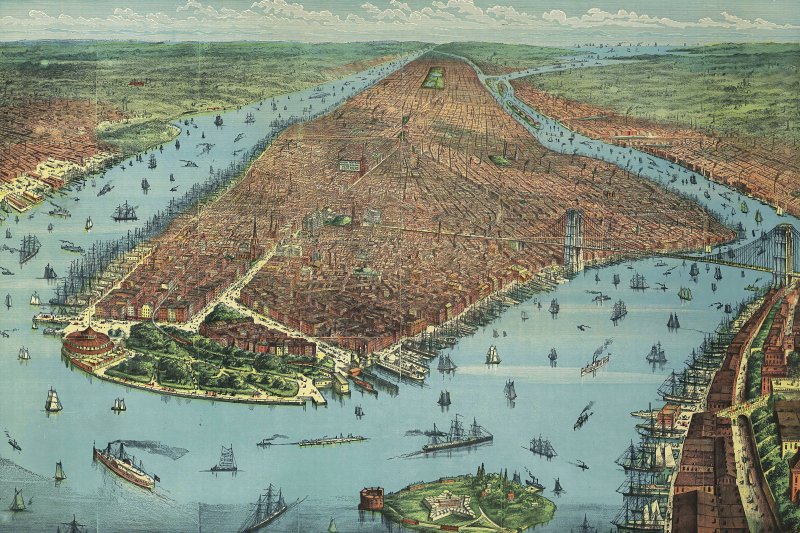
Creating a place for wonder
Ben Hohman, Salve’s newest assistant professor of religious and theological studies, explores the intersection of faith and nature, offering a fresh perspective on eco-theology and its implications for students and the environment.

By Karen Carlo Ruhren
When Ben Hohman and his 4-year-old daughter travel over the Jamestown Bridge en route to Salve Regina University, the assistant professor of religious and theological studies smiles as his little girl invariably says hello to the lighthouse. Through the car window, the splendor of the ocean, the boats and the lighthouse are exciting to her. It’s a fitting nod to Hohman’s work as he examines ecological and environmental theology.
“There’s something religious and spiritual about the ocean,” said Hohman, who was born and raised in Indiana and likes to say he grew up surrounded by “seas of corn, not saltwater.” Yet Hohman, who joined the faculty in fall 2024, instantly felt at home in the Ocean State and knew that Salve was a natural fit – from the warm welcome by colleagues and students to the school’s small, intimate setting.
“I grew up on a campus not that different from Salve,” said Hohman. Both of his parents were professors of theology at Marian University and, along with his sister (who also pursued academia), the family enjoyed “rich conversations around the dinner table.”
Despite the stereotypical angle that environmental spirituality often draws, Hohman has always approached the discipline from a different perspective. “My entry to the field was not granola and Birkenstocks, but theology,” he noted.
“I take seriously the academic work of theology because its goal is to change the way we experience reality,” said Hohman. “My interest in eco-theology is to get us to think about grace in relationship to the natural world…and create a place for wonder.”
In a field of larger-than-life questions, Hohman understands that big issues should be shared with students in a way that is specific and applicable to their lives and believes that the task of religion is a lot like that of autobiography.
“In both cases, we lack experiential access to the beginning and end of the story, but we can use the tools we’re given to create meaning of the middle.”
Hohman looks to engage students with academic concepts such as nature, grace and conversion—specifically how people’s lives are transformed by grace. The topic holds special interest to Hohman, who is editing a book on Augustine’s “Confessions” and exploring conversion not as “changing teams,” but as falling in love with God.
He is also examining “ecological conversion” in Pope Francis’s 2015 papal letter on the environment, namely the question of humans, animals and the rest of creation joined in Heavenly unity.
“Never before has a Pope talked so inclusively about Heavenly glory. I’m hoping to think rigorously about the implications of this development,” said Hohman.
Underpinning all of Hohman’s objectives is Salve’s mercy mission, which he believes ties in perfectly with the concept of theology and the environment.
“The scientific method can adopt too narrow of a lens and miss the interconnection of things,” he said. The idea of mercy, he points out, is refreshingly opposite and spiritually uplifting.
“It asks us to stay open…and approach each day in wonder.”


